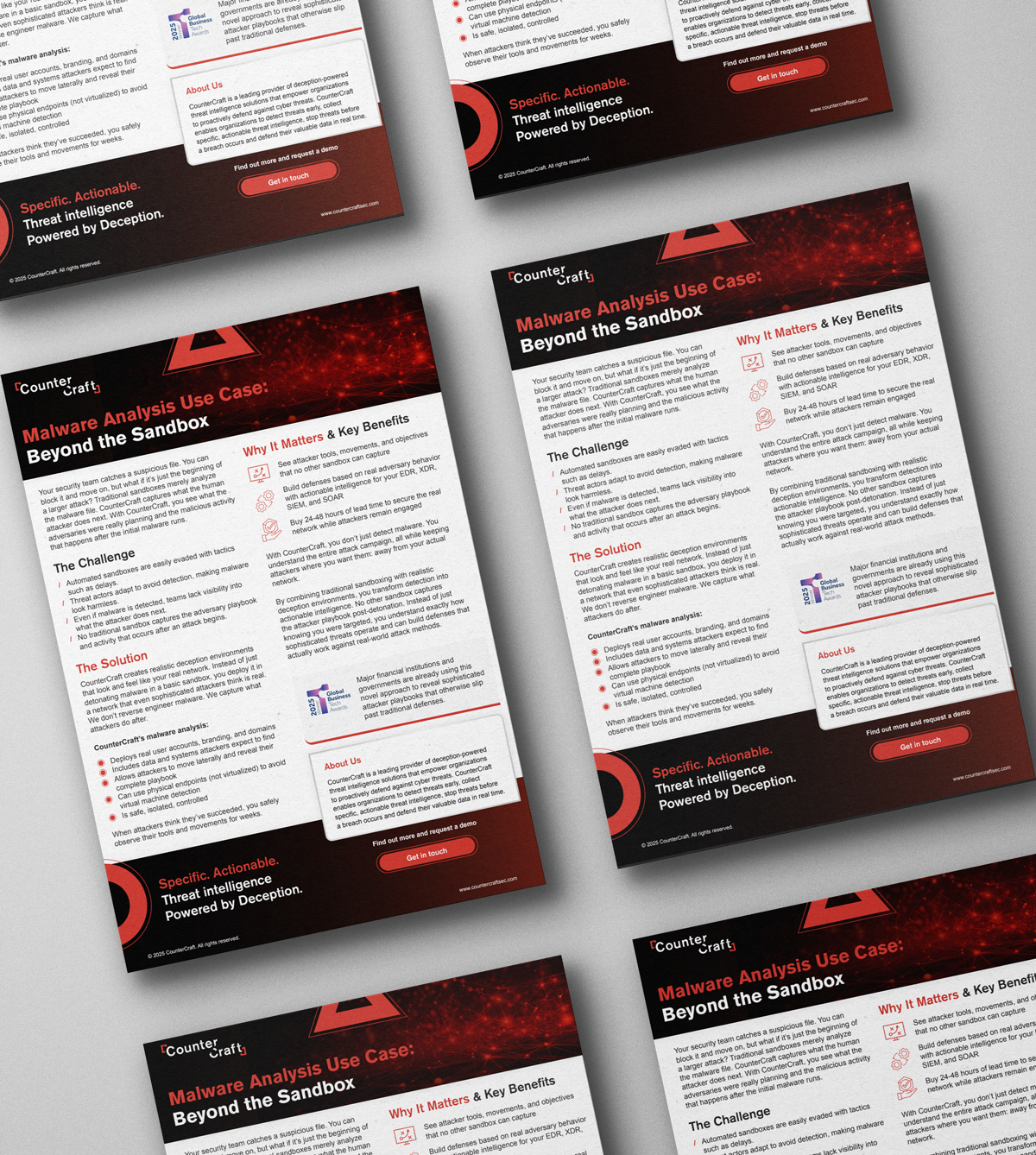
What you’ll learn
How we capture attacker behavior that traditional sandboxes miss
How you can observe complete attack chains, lateral movement, and more
Finding out in real-time how your defenses would have performed

How we capture attacker behavior that traditional sandboxes miss
How you can observe complete attack chains, lateral movement, and more
Finding out in real-time how your defenses would have performed